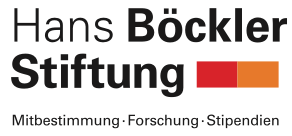Column
Antitrust law is (finally) being enforced again in the U.S.
The Biden administration has been breathing new life into efforts to join Germany and the EU in reining in big, predatory companies. But years of policy neglect make it a challenge.
The United States under the Biden administration has been quietly engineering a new and more robust anti-monopoly policy aimed at reining in Big Tech and other large American companies. Biden has revitalized antitrust enforcement and other efforts to put new rules around these companies, marking the biggest turnaround in competition regulation in three decades.
So far its accomplishments have been modest. But the overall direction has put the US on a clear path that is closer to enforcement approaches used in Germany and the EU. And this could benefit the European economy by opening up more markets for European companies that are currently dominated by US global giants.
Forty years ago the Reagan administration started scaling back enforcement, inspired by what has become known as the University of Chicago school that prioritized a narrow definition of “consumer welfare” and “economic efficiency” over trying to limit raw market power and economic dominance. The result has been giant monopoly companies that, like large mountains, create their own weather that everyone else must deal with.
With both Democratic and Republican parties having been captured by this philosophy, for decades this laissez faire capitalism meant there has been hardly any enforcement actions brought against monopolies or mergers, despite big corporations buying up their competitors and consolidating markets in industry after industry.
Historically, this has resulted in the loss of millions of good jobs, significant wage losses of remaining employees, a loss of new business startups, and unreasonable price increases in certain industries, all resulting from a loss of competition.
Biden was the first president who mentioned “antitrust” in a State of the Union since Jimmy Carter.
But a new breed of legal scholars and regulators have pushed back against the Chicago School, arguing that new anticompetitive risks posed by tech giants like Google, Facebook, Amazon and Apple, as well as mergers in the airline and other industries, require government refereeing and innovative legal solutions. After decades in which the antitrust benchmark of consumer welfare and low prices has become obsolete, the anti-monopolists are revisiting the idea from early 20th century trust-buster president Teddy Roosevelt that mega-corporate power can distort markets, as well as harm sellers, small businesses, workers, new startups and democracy itself. This emerging philosophy has been embraced as the Biden administration’s vision for competition policy in the internet age.
“Capitalism without competition is not capitalism,” said President Biden in his State of the Union address on February 7, 2023. “It is exploitation.” In 2021 Biden said, “Rather than competing for consumers, [these companies] are consuming their competitors,” citing the agriculture, technology and pharmaceutical industries. “Rather than competing for workers, they’re finding ways to gain the upper hand on labor.”
Biden has urged Congress to pass legislation “to strengthen antitrust enforcement and prevent big online platforms from giving their own products an unfair advantage.” Biden’s call to action was the first time a president has mentioned “antitrust” in a State of the Union since former President Jimmy Carter in 1979.
Already Biden has signed a sweeping Executive Order on Promoting Competition in the American Economy, which included 72 action items focused on addressing concentrated corporate power in a wide breadth of markets, ranging from agriculture to broadband to prescription drugs to airlines to railroads. His executive order requires more than a dozen agencies across the federal government to more closely scrutinize and take action against corporate mergers, touching on everything from restricting non-compete agreements for workers to policing bank mergers.
The main instruments for advancing the Biden administration’s new policy have been threefold:
- New regulatory leadership. Biden has made highly-praised appointments to the two main regulatory bodies, the Federal Trade Commission (FTC) and the Department of Justice (DOJ);
- Lawsuits and legal enforcement. Lawsuits can be a powerful tool to enforce the laws, though a somewhat risky strategy because these deep-pocketed companies have armies of lawyers and the legal route is time-consuming;
- Executive orders and legislation. The Biden administration has tried to pass legislation that would provide the regulators with more tools in their toolbox, but has had trouble keeping Democratic legislators in line, especially in the closely divided Senate. The Democratic Party sometimes loses its nerve amidst big business lobbying blitzes.
President Biden also has used the bully pulpit of his presidency to advocate for more vigorous regulations, laws and enforcement, and to criticize the largest tech companies such as Amazon, Meta, Google, Microsoft and Apple, as having abused their corporate mega-power and hurting everyday Americans.
New regulatory leadership
The administration has appointed a team of strong enforcement-minded leaders to head the main antitrust agencies — lawyer Lina M. Khan as chair of the Federal Trade Commission (FTC), and lawyer Jonathan Kanter to head the Justice Department’s Antitrust Division. Biden has also prioritized the appointment of judges sympathetic to the new anti-monopoly philosophy.
Khan’s tenure as chair of the FTC has included a string of moves to stop violations of anti-monopoly laws. Those include:
- Filing a lawsuit against Facebook to break it up for allegedly maintaining its monopoly power by acquiring Instagram and WhatsApp (which the Obama administration previously had approved);
- Rescinding a long-standing policy statement that limited the FTC’s ability to challenge unfair methods of competition;
- Issuing an order that requires nine tech companies, including Amazon, Facebook, Google, and TikTok, to provide data on how they collect and use information from their users
- launched a preliminary investigation into Coca-Cola and PepsiCo, alleging that the beverage makers offered lower prices to larger retailers in violation of the law that prohibits price discrimination between large and small retailers for like products.
Many of the FTC’s recent actions have proceeded on a close 3-2 party line commission vote (Democrats vs. Republicans). Many of these small-looking steps have undone decades-old policies and practices, replacing them with aggressive approaches that add more scrutiny to corporate practices, including the mergers and acquisitions process.
Lawsuits and legal enforcements
One of the biggest enforcement sticks of the FTC and Justice Department is using lawsuits and criminal proceedings to enforce the laws. If the threat is credible, even the mere threat of a lawsuit can change corporate behavior. Yet for decades, neither of these agencies used this tool very often. That also has changed dramatically.
In January 2023, the Justice Department and eight states filed a suit aiming to break up Google’s lucrative ad business, which would be a major intervention since advertising revenue makes up 80 percent of Google’s business. Another lawsuit from 2020 which alleges that Google monopolizes online search is headed for trial later this year. Meanwhile, the FTC is pursuing a number of ambitious lawsuits aiming to wrest Instagram and WhatsApp away from Facebook parent Meta. The FTC is also attempting to prevent heavyweight Microsoft from gobbling up smaller firms, filing to block Microsoft’s $69 billion acquisition of gaming company Activision Blizzard. Previously, in December 2021, the FTC sued to block Nvidia’s takeover of chipmaker Arm, asserting that the vertical merger would allow the combined entity to unfairly undermine competitors.
Most recently on March 7, the Justice Department filed a legal complaint opposing the merger of JetBlue and Spirit Airlines, calling the merger unlawful. Biden’s Department of Transportation Secretary Pete Buttigieg announced that his department would also use its authority to oppose the merger. The federal government and the DOT have not opposed an airline merger since the 1980s, despite The Economist noting that the profit per passenger in the U.S. is three times that of Europe.
Justice Department and FTC have launched a surge of lawsuits targeting some of the biggest players in industries.
Combined, Kanter’s Justice Department and Khan’s FTC have launched a surge of lawsuits targeting some of the biggest players in industries ranging from Big Tech to pharmaceuticals to book publishing. Other actions are focused on opening up charging networks for electric vehicles and making hearing aids cheaper by making them available over-the-counter without a prescription. Khan and Kanter are purposely pursuing a new strategy of bringing long-shot cases before the courts, involving a range of legal interventions, under the theory that activist agencies will send a powerful signal to these companies.
Meanwhile states as well as private actors, encouraged by the Biden administration, are also using the courts. In February 2023, the Supreme Court heard arguments in a private lawsuit, Gonzalez v. Google, in which the plaintiff argues that companies like Google should be legally liable for any harm that comes from algorithmically boosting malicious content. In the states, attorneys general have filed important legal actions, including, California v. Amazon, which alleges that Amazon prevents sellers from lowering their prices at other retailers, creating “price floors” that keep prices artificially high.
Texas, Colorado and Utah also have pending cases against Google, alleging violations such as Google discriminating against third-party search providers and maintaining its internet search monopoly using anticompetitive agreements and payoffs.
Polarized Congress stalls over legislation
All of these interventions reflect the biggest change in US anti-monopoly and pro-consumer policy in decades. Using executive orders and regulatory powers, the Biden administration has taken on some smaller targets, such as banning junk fees and hidden surcharges, cutting credit card late fees, reducing exorbitant bank overdraft fees, cracking down on high fees charged by ocean shippers and ensuring refunds for cancelled flights. But the FTC and Justice Department are going after the biggest of prizes, including break-ups of some companies and blocking mergers.
But if this new approach is to survive after Biden’s presidency, it needs to be locked into new laws to prevent any victories from being overturned by future courts or executive orders from different presidents. And that’s where this effort so far has stumbled. With Democrats holding a bare majority in the Senate, and a hostile Republican caucus that knee-jerk blocks any Democratic successes, Biden and the Democrats have few legislative successes to show for their efforts.
There have been a number of disappointments. Biden has urged Congress to pass legislation to stop Big Tech from collecting personal data on kids and teenagers online, to ban targeted advertising to children, and “impose stricter limits on the personal data these companies collect on all of us.” Congress has failed to pass any such legislation. It also has failed to pass its biggest initiative to date, a bill that would have cracked down on anti-competitive practices by the biggest tech companies.
The tech companies also have been tapping into the latest wave of anti-China hysteria.
The defeated antitrust package was bipartisan and three years in the making. It would have rewritten the rules of the online economy to prevent companies such as Google, Apple, Amazon and Facebook from using their platforms to tilt the market toward their own goods and services, or restricting clients from rival platforms. But after the tech lobby, which donates large sums of money to both political parties, voiced strong objections about the bill, Democratic leaders never brought it to a vote. Certain Democratic leaders from influential states like California, where Silicon Valley is based, often boast loudly about the dangers of Big Tech but then fail to support commensurate regulation.
The tech companies also have been tapping into the latest wave of anti-China hysteria, claiming that the legislation would benefit Chinese rivals. Now that the Republicans control the US House, they are unlikely to take up any anti-monopoly legislation.
The Empire, i.e. Big Tech strikes back
With the battle over corporate power and privilege moving closer to center stage, Big Tech is not taking any of this lying down. Google, Meta, Apple and others have hired legions of lawyers and lobbyists to fight antitrust legislation and lawsuits. They are even hiring former federal government insiders to do it.
Google has hired at least five former Department of Justice attorneys, including a former top federal competition lawyer who now serves as the company’s strategy counsel. The company has also retained the services of four outside law firms that have nearly 20 former Justice lawyers among them. Google is gearing up for the regulatory clash of its life, so it’s literally hiring the old regulators to battle the new regulators.
The courts already have ruled against several of the Justice Department’s merger challenges. And a federal district court in California handed the FTC a notable defeat by upholding Meta’s acquisition of VR software developer Within. This was seen as a test case for the agency’s aggressive new stance against large firms seeking to dominate emerging sectors by buying start-ups. Some judges, trained in Chicago School orthodoxy, are not buying the new antitrust philosophy, which is why new legislation is needed to clarify old laws.
At this point more than halfway through Biden’s term, his regulators’ losses have outpaced their wins. Virtually all of the antitrust bills that Congress debated last year stalled in the filibuster-crazy Senate. Nevertheless, the Biden enforcers remain optimistic. “To move the law and protect competition, we have to bring tough cases,” said Holly Vedova, director of the agency’s competition bureau. “There’s some risks involved, but…it was worth it.”
Other agencies and appointees of the Biden administration are also pushing a complementary pro-labor agenda. Recently a regional director of the National Labor Relations Board (NLRB) ruled that Google is a “joint employer” and therefore legally required to negotiate with its YouTube contract workers if they form a union. Google has tried to argue it is not the employer of contracted staff, but the NLRB so far has rejected Google’s rationale.
Impacts on Germany and the EU
Modern antitrust laws were invented in America, and for decades the influential Chicago School promulgated its deregulatory philosophy which became dominant all over the world. That includes in Germany and the EU. Nevertheless, in the complete absence of US leadership, Europe’s “better than nothing” regulatory approach has provided the only global authority over competition.
The EU has tried to keep U.S. companies in check for years with its antitrust enforcement, including the prevention of the General Electric-Honeywell merger in 2001. The European Commission has fined Google nearly $10 billion for breaching EU antitrust laws, and Meta/Facebook $725 million over the Cambridge Analytica scandal and another $414 million for other privacy violations. Previously the European Commission fined Apple $14 billion for failure to pay the proper amount of business taxes, and is threatening Apple with billions more in fines for blocking competing financial services on the iPhone in favor of its own service, ApplePay. But for companies that had net profits in 2022 of $95 billion (Apple), $23 billion (Facebook) and $60 billion (Google), these “small” fines are just part of the cost of doing business.
Nevertheless, one recent study of antitrust statutes from 125 countries found they had adopted domestic antitrust laws more similar in substance to the EU than the United States. And the EU’s Digital Markets Act, while limited in its ambition, scope and effectiveness, smartly targets systemically important gatekeeper companies that are so large that they have the ability to manipulate markets.
In Germany, the Federal Cartel Office launched a number of high profile and hotly debated antitrust investigations into the conduct of digital platform companies such as Facebook. The conclusion was that Germany's existing antitrust laws had not allowed regulators and the courts to move fast enough to block abuses of market power in rapidly changing digital markets. That prompted Germany to become one of the first major jurisdictions to adopt rules for competition and antitrust applied to tech platforms. The Bundestag passed the GWB Digitization Act which amended Germany's antitrust laws to include special competition rules for digital platform "companies with overwhelming importance for competition across multiple markets."
It makes sense to join the transatlantic efforts as a way of ensuring fair and competitive economies for all.
However, the global tone and pace of antitrust policy and regulation was established by the US decades ago. So the change afoot in Washington DC is an important shift, one that has potential to be systemically important to the global economy. The Biden administration see its efforts as a “once-in-a-generation chance” to show Rooseveltian presidential leadership and reverse decades of conservative thinking in antitrust law.
But it remains to be seen if the Biden administration can maintain and even extend these efforts. A lot is at stake. Well-functioning economies must benefit from a broadly shared prosperity composed of decent wages and working conditions, innovation, consumer choice, new business startups, fair pricing mechanisms and, not least, a representative democracy that rules the economy, not the other way around.
Germany, the EU and the US all are facing these same challenges, so it makes sense to join the transatlantic efforts as a way of ensuring fair and competitive economies for all.
German Language Version
-
Column
US support for codetermination from an unlikely source – conservative Republicans
-
Column
Can the EU and the US protect their 21st century workforces?
-
Column
Massive tech layoffs continue as companies retool for AI
-
Column
US labor unions strike over impacts of AI and new technologies
-
Column
Antitrust law is (finally) being enforced again in the U.S.
-
Column
Employer surveillance against workers spreads
-
Column
If it seems too good to be true … it probably is
-
Column
Helping gig workers help themselves
-
Column
Workers of the World…quit?
-
Column
Will US labor unions stand by Uber drivers and gig workers?
-
Column
Stirrings of union organizing in the “paradise” of Big Tech
-
Column
Will Pres. Joe Biden restore worker and union power?
-
Column
Corona-fied: employers spying on remote workers in their homes?
-
Column
The challenges of the post-coronavirus workforce
-
Column
Amazon workers fight back
-
Column
A blow against "bogus self-employment" and gig economy
-
Column
Renewing Worker Cooperatives for the Digital Age
-
Column
Codetermination takes the spotlight in the US
-
Column
Who will fight for the 'good jobs' economy?
-
Column
Trump attacks workers and the labor movement in the US
-
Column
The distributed workforce: what will jobs of the future look like?
-
Column
The "Uber way" of precarious work




